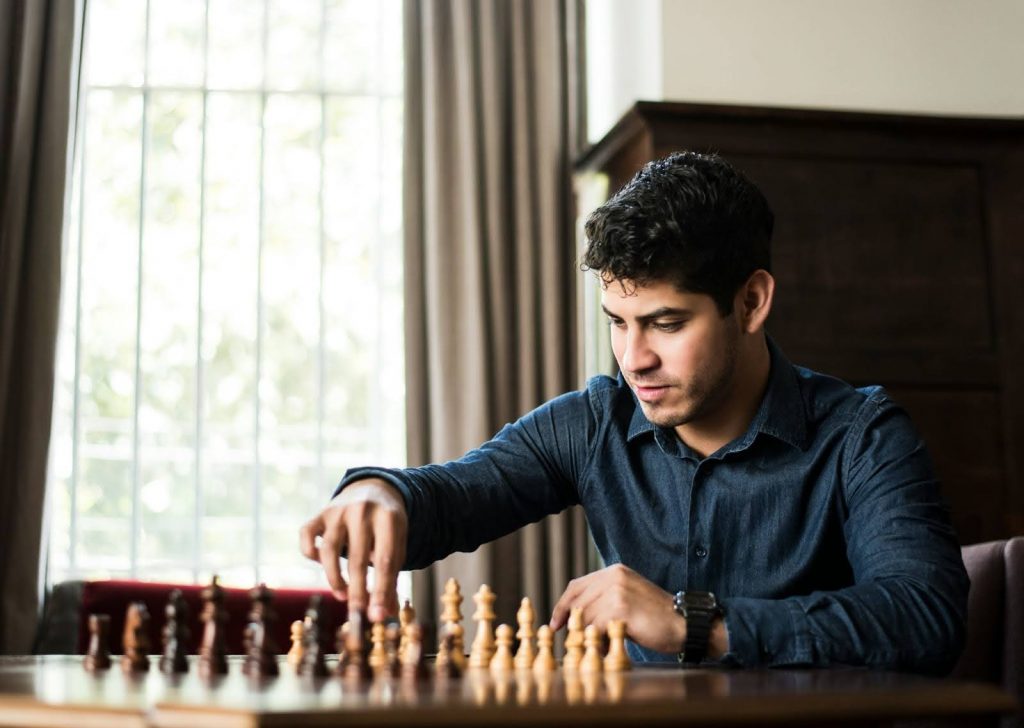Whether you’re a chess enthusiast or a parent supporting a budding chess star, participating in a chess tournament for the first time can feel intimidating. But don’t worry! It’s much less daunting than it sounds, and with the right preparation, you’ll feel confident enough to make your move in the great battle of wits. Let’s walk you through how to play in chess tournament for the first time, from preparation and understanding the tournament formats to parental support and practical tips. So, let’s get started!
Get Ready to Play: How to Play in Chess Tournament and Prepare
Stepping into the world of chess tournaments can feel overwhelming, but preparation is key. Joining a chess community is one of the best ways to get tournament-ready. They offer more than just practice—they provide valuable insights that can significantly elevate your game.
At chess communities, you’ll regularly play against opponents of varying skill levels, exposing you to different playing styles, which is essential for tournaments. They often host friendly matches or mini-tournaments, giving you a taste of the competitive atmosphere without the pressure. Additionally, you’ll receive coaching in areas like opening theories, middle-game strategies, and endgame tactics, helping you build a solid repertoire and avoid common pitfalls.
A major benefit of being in a chess community is learning from members with tournament experience. They can offer tips on etiquette, time management, and the mental aspect of competing, giving you practical advice to navigate your first tournament smoothly. The camaraderie and support from fellow members can also ease pre-tournament nerves and boost your confidence as you prepare to compete.
Joining a chess community is one of the best steps toward preparing for your first tournament. But to take your skills to the next level, consider training with the Caissa School of Chess. Their expert coaching, combined with tournament preparation tips and real-world experience, will give you the competitive edge you need. Whether it’s mastering the opening, middle game, or endgame strategies, Caissa School of Chess has you covered with tailored lessons from grandmasters.
Mastering the Basics: Understanding Common Chess
Tournament Formats
Chess tournaments are an entirely different experience from casual games at home, often lasting much longer and requiring more mental stamina. Most standard chess tournaments span several rounds, and depending on the format, you could be competing over the course of an entire day or even several days. Each round typically lasts anywhere from 30 minutes to several hours, and there are scheduled breaks between rounds to allow players to rest and prepare for their next game.
The tournament structure is vital to understand because it not only dictates how many games you’ll play but also impacts the overall strategy and pacing. For example, in some formats, winning early matches may pair you against stronger players later on, so conserving mental energy while staying focused is key. Knowing how long you’ll be playing and how the tournament is set up helps you pace yourself, ensuring you’re not burned out by the final rounds.
Additionally, tournaments like Swiss systems might have you competing against players with similar scores after each round, so even if you lose one game, you still have a shot at climbing back up. Knock-out formats, on the other hand, require you to win every game to advance, making each round critical.
Explanation of Common Formats: Swiss, Knock-out, and Round Robin
You might have heard terms like Swiss, Knock-out, and Round Robin when it comes to tournament formats, but what do they actually mean?
- Swiss System: This is the most common format in larger tournaments. Players are paired based on their scores after each round. So, winners play against winners, and those with fewer points play each other. No one is eliminated, making it ideal for players of all levels.
- Knock-out: This format works like many other sports competitions—if you lose, you’re out. It’s a high-stakes format that can lead to some tense, nail-biting matches!
- Round Robin: Here, every player competes against every other player in the group. This format is usually seen in smaller tournaments or when only a few players are involved.
How Tournament Formats Impact Strategies
Each format has a distinct impact on strategy. In the Swiss system, consistency is key. Since you’re matched with players of similar scores, a single loss doesn’t end your tournament, but each win or loss impacts your future opponents. In knock-out, however, you must treat every game as a do-or-die situation, so playing defensively may not be the best approach. In round robin, endurance and adaptability are important since you’ll face every participant.
Understanding these formats will allow you to adapt your strategies based on the structure of the tournament.
However, preparing for a tournament involves more than just tactics. With Caissa School of Chess, you can simulate tournament scenarios, building mental endurance for multiple games in a day. The platform’s timed challenges and varied formats help you stay focused, mimicking real tournament conditions.
Sign Up for Success: A Step-by-Step Guide to Tournament Registration
Most tournaments require players to register in advance. This involves filling out an online form, providing details such as your name, age category, and chess rating (if you have one). Make sure to check the deadline for registration because tournaments often fill up quickly, and spots can be limited.
Double-check the requirements, such as the tournament’s entry fee, and gather any materials needed, such as proof of your chess federation membership or ID card if required.
Onsite Registration and Check-In Procedures
For tournaments that allow onsite registration, make sure to arrive early. The check-in process usually involves confirming your registration details and paying any remaining fees. You’ll likely receive a schedule of the day’s matches, so take a moment to familiarize yourself with the timing of the rounds and breaks.
Being early also gives you a chance to settle in, scout the venue, and mentally prepare before your first match begins.
Play by the Rules: Essential Chess Tournament Etiquette and Conduct
While you may already know the basics of chess, tournaments have specific rules that players must follow, one of the most important being the Touch Move rule. This rule states that if you touch a piece on the board, you must move it (if it has a legal move). This rule emphasizes careful thinking and prevents players from taking back moves.
Another key rule is the 50-move draw—if neither player makes a capture or pawn move in 50 consecutive moves, the game ends in a draw. Understanding these finer details can help you avoid any accidental rule breaks during the tournament.
Chess Notation and Other Required Conduct During Games
In many rated tournaments, players are required to keep track of their moves through chess notation. This involves writing down every move using standard chess notation symbols. Keeping track not only helps in case of disputes but also allows you to review your game afterward and learn from it.
Other expected behaviors include not disturbing your opponent, adhering to time controls, and maintaining proper decorum at all times.
Winning and Learning: How Scoring and Ratings Work
Chess tournaments usually operate on a simple points system:
- Win = 1 point
- Draw = 0.5 points
- Loss = 0 points
At the end of the tournament, the player with the most points wins. In the Swiss format, your score determines who you face in the next round. It’s important to remember that in some tournaments, even if you don’t finish first, having a decent score could still increase your rating.
How do Ratings Work in Both Rated and Non-Rated Tournaments?
Chess ratings are a numerical representation of your skill level. If you’re playing in a rated tournament, your results can either increase or decrease your rating based on your performance and your opponent’s rating. In contrast, non-rated tournaments are more casual and won’t affect your official rating.
New players usually start with a provisional rating, which adjusts quickly based on early results. As you play more tournaments, your rating becomes more stable and reflective of your true ability.
Support Systems: The Role of Parents in Chess Tournaments

Parents play a vital role in supporting young chess players during tournaments. Emotional support, helping manage nerves, and ensuring players are well-rested and focused are key aspects of parental involvement.
Encouraging children to enjoy the tournament experience without placing too much pressure on winning can create a positive atmosphere. Remember, every game is a learning experience, and even losses provide valuable lessons.
Providing Emotional and Logistical Support to Participants
Tournaments can be long and sometimes stressful, so parents can help by taking care of practical details, like providing snacks, helping players find quiet spots to rest between rounds, and offering words of encouragement. Being present and understanding can make a big difference in keeping young players calm and motivated throughout the event.
Pro Tips for First-Timers: Navigating the Tournament Like a Pro
Being well-prepared goes beyond studying chess openings! Make sure you’re physically prepared as well—get a good night’s sleep before the tournament and stay hydrated throughout the day. Bring snacks or light meals to maintain energy levels between rounds.
Mental endurance is just as important as strategy, so taking care of your body will help you stay sharp during long matches.
Familiarize yourself with the tournament venue ahead of time, especially if it’s a large location with multiple rooms. Knowing where everything is, including restrooms and break areas, will save you from last-minute panic.
When the pairings are posted for each round, find your name on the list to see who your opponent is and what board you’ll be playing at. Tournament directors often post this information on a large bulletin board or digitally through an app.
Your First Chess Tournament Is Just the Beginning: What’s Next?
Participating in your first chess tournament is an exciting milestone, and whether you win or lose, the experience will undoubtedly make you a stronger player. Tournaments teach you not just about the game but also about your personal strengths and areas for improvement.
Every game is a learning opportunity. Embrace the highs and lows, and most importantly—enjoy the journey. With consistent practice, dedication, and support from your chess club and family, this tournament is just the start of your chess adventure!
Continue honing your skills with Caissa School of Chess, which offers interactive practice sessions, daily challenges, and a community of players to compete against, helping you stay tournament-ready long after your first event. Whether it’s refining tactics or tracking upcoming tournaments, Caissa School of Chess keeps you connected to the chess world.
Ready to take the plunge? Share your biggest chess tournament worry or excitement, and let’s prepare for your first tournament together!





